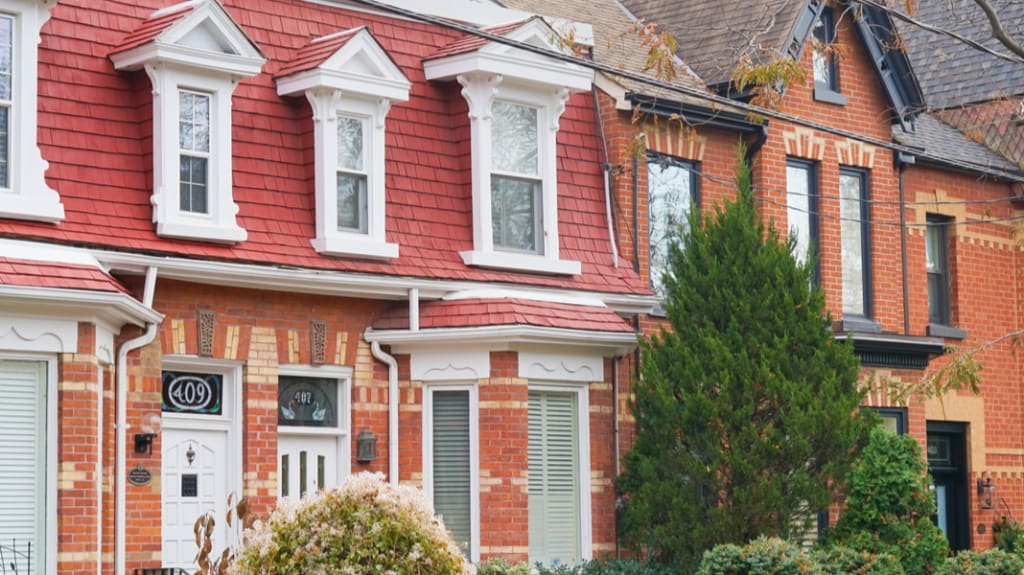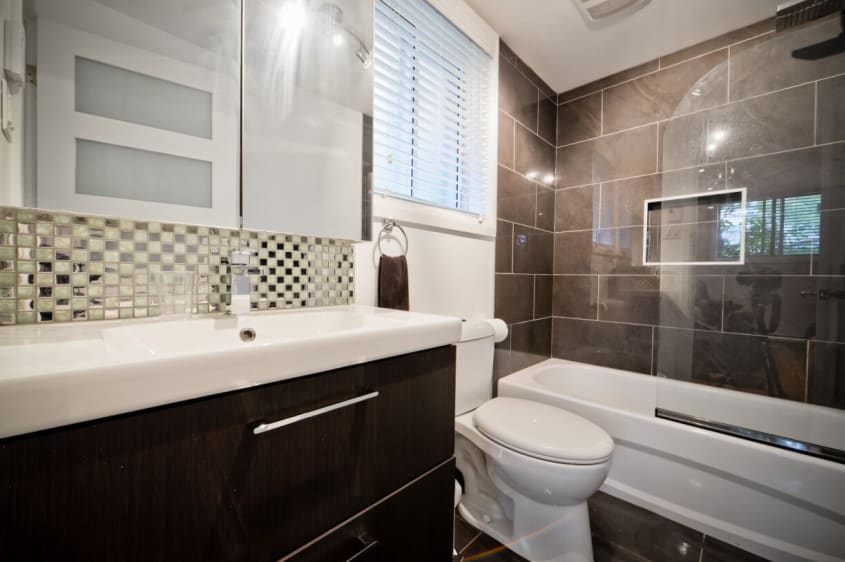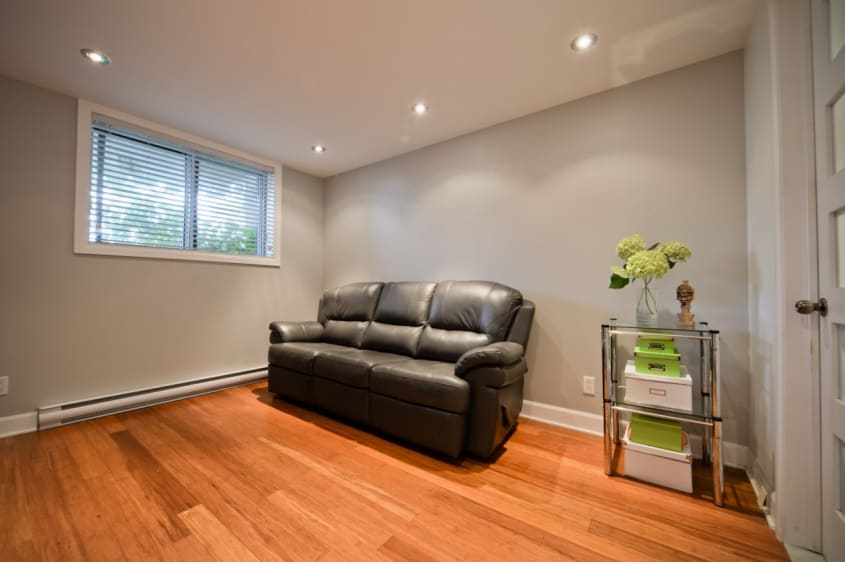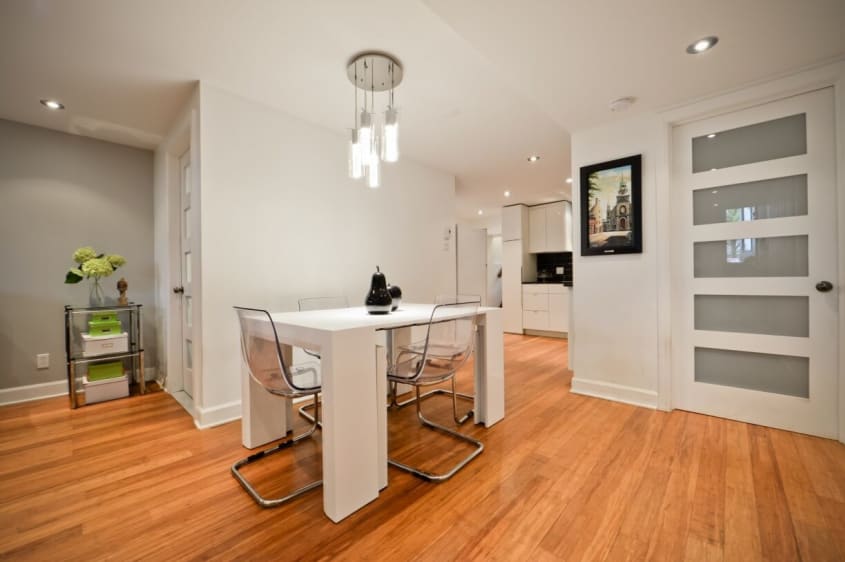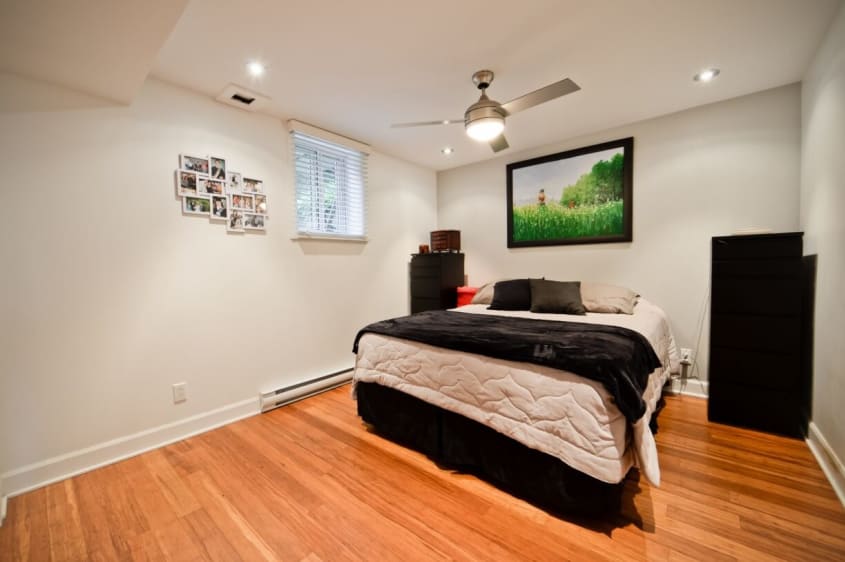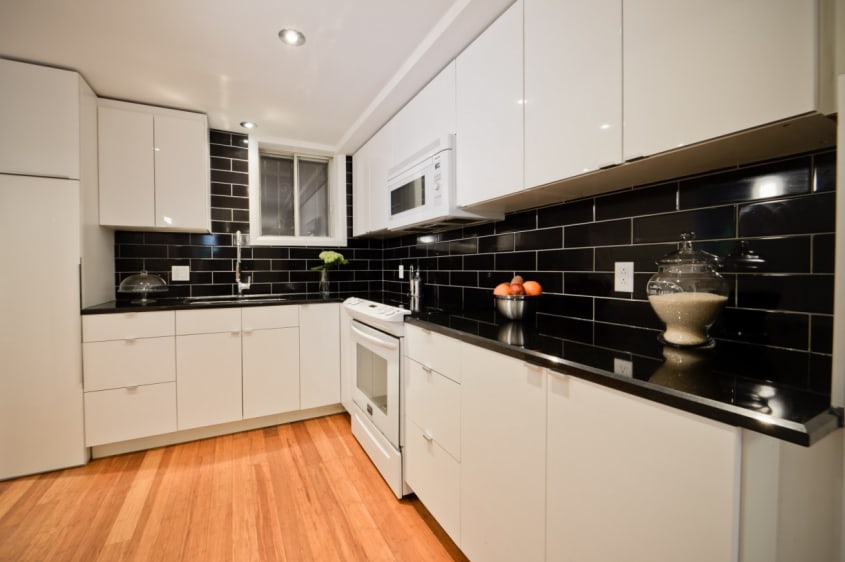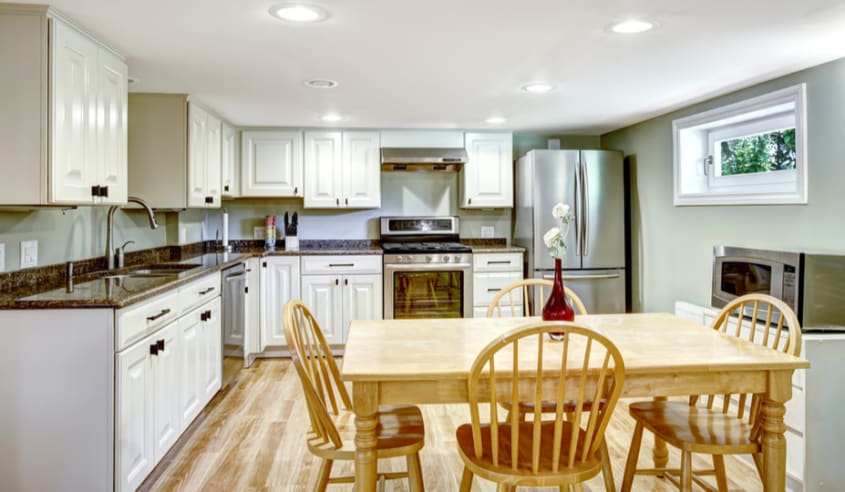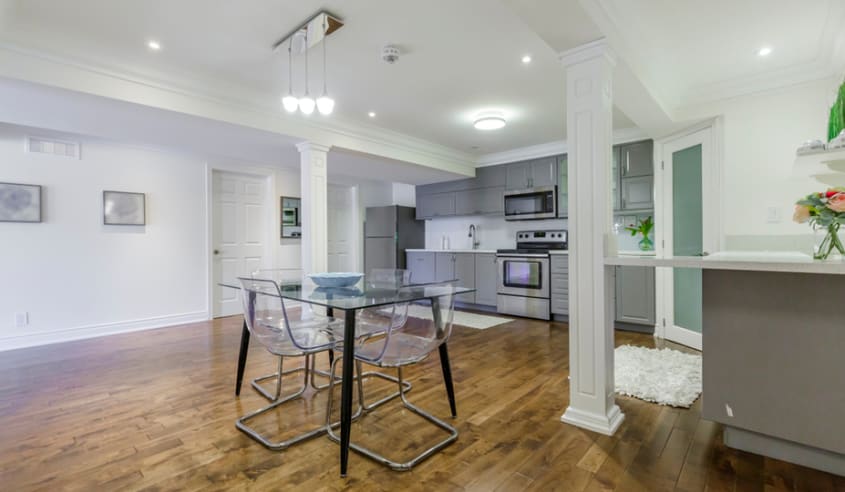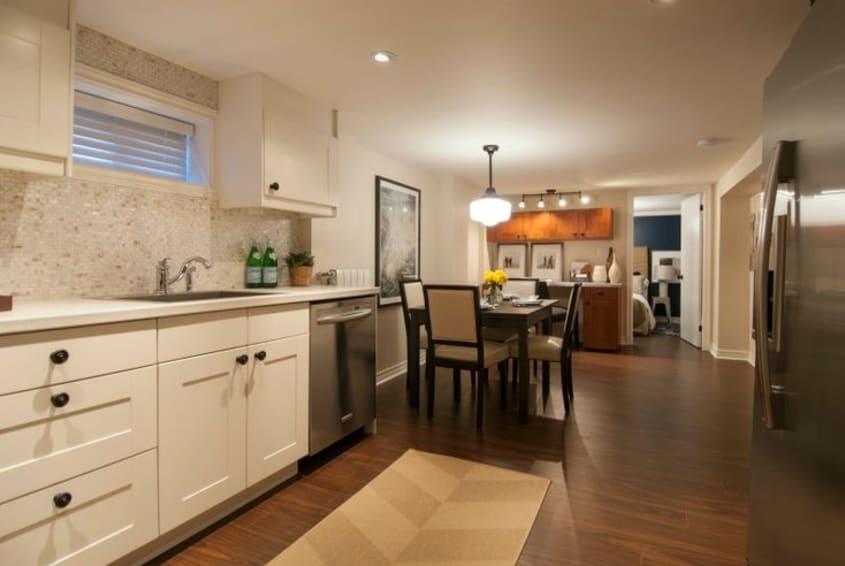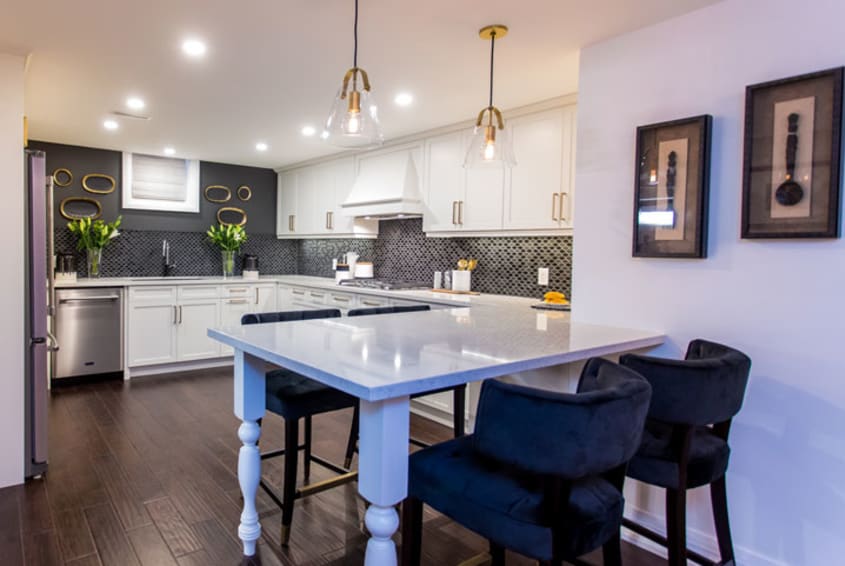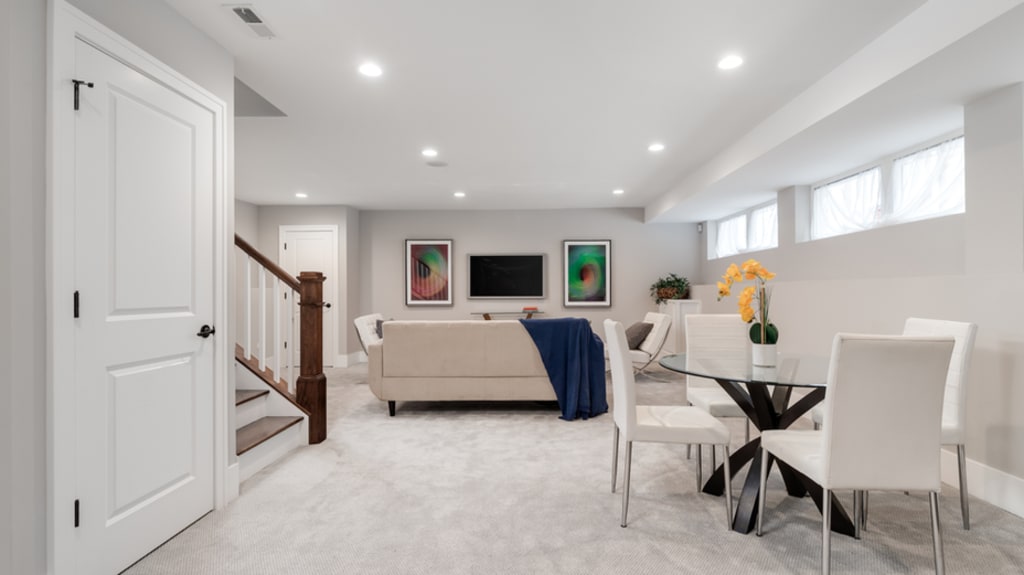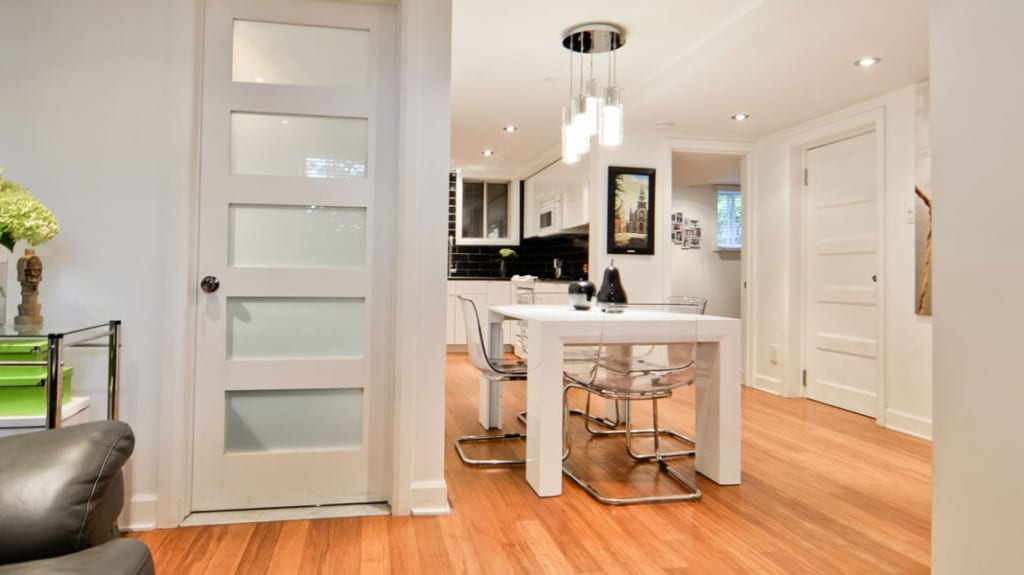With the prices of houses being more than 3 times higher now than they were in 2000, more and more homeowners in the Greater Toronto Area are looking to turn their homes into sources of income. When taking on a basement apartment renovation or conversion, it’s important to consider what its intended purpose is — short-term or long-term rental? There are a lot of pros and cons to consider for each option, and our Renovation Advisors have compiled a quick summary to help you figure out which works best for you and your property!
Short-Term Rentals
Pros
Renovating for short-term rentals comes with a lot of benefits. At a glance, here are the primary advantages:
No need to comply with regulations for long-term rentals
Flexibility in design, depending on the type of rental desired
Flexibility with use of space overall
High turnover rate for tenants
Possibility for seasonal rate hikes
Short-term rentals are minimally regulated
Permits are inexpensive
Since it’s not a full-time residence, there are certain obligations that landlords have to undertake that do not apply. By law in the city of Toronto, basement apartments, for example, must offer a parking spot, as well as have a minimum ceiling height of 6.5 ft. To be a legal basement apartment for full-time tenants, there are certain fire safety and building codes that must be met to avoid serious fines and penalties from the city. Since a short-term rental is more like a hotel than a residence, the regulations are different.
Because short-term rentals are a fairly new concept, there is little regulation surrounding them, allowing you the flexibility to use the space as you see fit. For example, if you have friends or family that live out of town that may frequently visit, going the short-term rental route would work best for you. This allows you to have income from short-term guests while keeping the flexibility to have loved ones use the space when you need it.
Currently, there are only a handful of regulations in place for short-term rentals. Earlier this month, the Local Planning Appeal Tribunal (LPAT) met to discuss possible changes to these regulations, so the pros and cons of short-term rentals may quickly change. As these decisions are finalized, this article will be updated to reflect the reality of short-term rentals more accurately.
However, as of now, the rules are as follows:
Licensing for short-term rentals are mandatory (only $50 per year)
They are taxable under the Municipal Accommodation Tax (MAT)
Unit cannot be rented out for more than 28 consecutive days by the same tenant to be considered “short-term”
Not only are the permit costs low for short-term rentals, but the profits can also be very high. Unlike a fixed, long-term rental agreement, when listing your basement apartment on a site like AirBnb, you can adjust the price depending on the season. In high season, like the summer or around the holidays, you can charge a higher rate per night.
Cons
While there are many financial and management benefits with short-term rentals, they also come with their fair share of challenges. Here are a few of the headaches you may encounter when using your basement apartment as a short-term rental:
Inconsistent booking/income
Disruptive or destructive guests
Unhappy neighbours
Possibility of changing regulations in the coming months/years
Less regulations and protections as a landlord

The flexibility of using your basement apartment as a short-term rental can be a double-edged sword. Because guests are renting per night, consistent bookings and therefore consistent income aren’t guaranteed. With more and more AirBnbs in the city every year, there is more competition, so filling up your schedule can be increasingly difficult.
Another downside of short-term rentals is the lack of oversight in terms of who can rent your basement apartment. Anyone can book a place on a rental site, without needing any sort of references, credit checks, or even security deposit, like you would with a long-term tenant. With the increasing popularity of short-term rentals, there has been a small uprising among certain community members, who feel their neighbourhoods are no longer peaceful and safe for their families. Short-term rentals are popular among tourists and people simply looking for a place to party. This is a growing concern in Greater Toronto Area suburbs, like Burlington and Vaughan. This can lead to public disturbances, property damage, and in some extreme cases, violent crime.
The biggest challenge that comes with short-term rentals at the moment is the lack of certainty of how it will be regulated in the future. As mentioned, the city of Toronto is currently deliberating on how to modify the current regulations, having heard testimony from experts and homeowners on both sides of the debate. Even if the proposed rules do get approved, they may take a long time to take effect. It’s important to note one key thing — these new regulations may make it illegal to use a basement apartment as a short-term rental in the city of Toronto. The proposed regulations would limit short-term rentals to the primary resident of a homeowner only, excluding secondary suites.
Essentially, many of the things that make short-term rentals a great way to make easy money from your basement apartment are sadly also what makes it a risky endeavour.
Long-Term Rentals
Pros
If you’re looking for a more stable source of income, renovating for a long-term rental might be the better option for you. Here are a few of the benefits of opting for a long-term rental for your basement apartment renovation:
Constant tenant/source of income
Regulations in place to protect landlords and tenants
Concrete agreement of terms and conditions of renting
The biggest advantage, overall, of choosing a long-term tenant versus a short-term one is the stability. Since the standard for long-term rentals are leases of one year, you are safe in knowing that you have one tenant paying a consistent amount of rent money for that entire lease period.
With the help of Ontario’s Residential Tenancy Agreement, not only are the terms of the lease specified and binding, but also any other conditions you choose, such as décor (painting, wallpaper, using nails and screws to hang pictures, etc.), length of agreement, and included utilities (if any). This ensures the responsibility of both you and your tenant to uphold the agreed-upon terms. If there is an issue regarding this agreement or any other disputes, the Ontario Landlord and Tenant Board is there to protect the interests of either party by upholding the provincial laws on this subject.
Cons
Similar to short-term rentals, many of the advantages of a long-term rental can also possibly be disadvantages. Essentially, while the amount of oversight and regulation make renovating for long-term rental use a safer option, it also makes it more complicated. Below are a few things to keep in mind when renovating your basement into a long-term rental:
Expensive building permits for renovations
Strict regulations to be considered a legal basement apartment
To ensure the safety of future tenants of your basement apartment, there are a lot of building and fire safety rules to follow when renovating. Of course, tenant safety should be a priority when undertaking any renovation, and there are very specific things that need to be looked at when renovating for a legal basement apartment. There are minimum requirements to be legally considered a second suite, such as
Minimum ceiling heights
Size of bedroom, living room, kitchen, bathroom, etc.
Plumbing for kitchen sink; access to laundry (in-unit or in second unit)
Fire separation
Following these regulations, and many others, also comes with a very hefty price tag. Permits to legalize an existing basement apartment, or to begin renovations to build a legal apartment, can cost tens or even hundreds of thousands of dollars. Even with the median cost of a one-bedroom apartment in Toronto costing $2,300, it can still take a homeowner several years before making back the money spent on the permits alone.
These complicated and expensive procedures are a big deterrent for homeowners and, unfortunately, has led to a rise in illegal housing renovations. Not only does that make it more challenging for law-abiding landlords to rent out their spaces at a fair rate, but it also can be extremely dangerous for desperate or uninformed tenants who live in these unpermitted suites.

Renovating Your Basement Apartment With Peace of Mind
No matter what option you feel works best for you, hiring the right basement contractor is key. With the help of one of our Renovation Advisors, you can rest easy knowing that your basement apartment renovation is being done by a Verified Contractor. This means they have been properly vetted, have an excellent work history, and will follow all necessary regulations for your project. Your designated Renovation Advisor will find you up to three qualified Contractors to submit quotes for your project! They will also be offering their support and expertise at every step of the renovation.
Appelez-nous today or fill out our form to get started!

